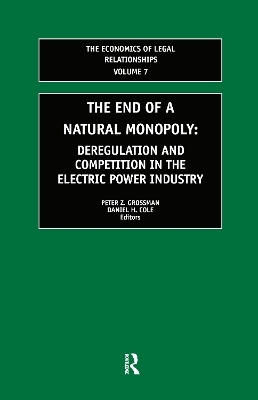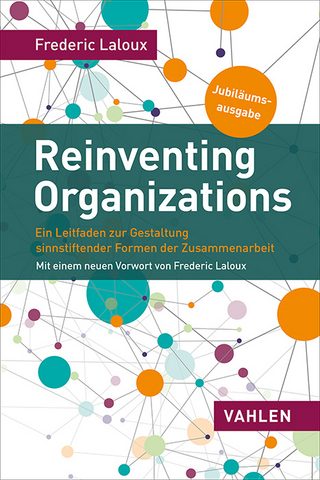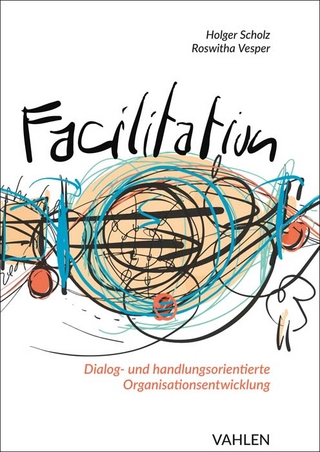
The End of a Natural Monopoly: Deregulation and Competition in the Electric Power Industry
Seiten
2003
JAI Press Inc. (Verlag)
978-0-7623-0995-5 (ISBN)
JAI Press Inc. (Verlag)
978-0-7623-0995-5 (ISBN)
This book addresses the fundamental issues underlying the debate over electric power regulation and deregulation.
For a hundred years, scholars and government officials understood, or thought they did, the electric power industry. Electric power, based on a single, large service provider, connected by wires to all of its customers, was thought to be an industry that could only operate efficiently as a monopoly; indeed it was something called a "natural monopoly." Since it had to be a monopoly, with all the attendant inefficiencies and potential market abuses monopoly entails, government regulation was necessary.
These basic assumptions, which at times seemed to conflict with observed facts remained largely unquestioned for the better part of 75 years. Then, changing institutional and technological circumstances led economists to question the basis in fact of the theory of natural monopoly, and the regulatory system it entailed. Movement toward a deregulated electric power system began albeit in piece-meal fashion.
Indeed, the result has been a crazy quilt of deregulation and re-regulations, which often have resulted in more costs than benefits for society as a whole. In the most infamous case, California, the entire enterprise of regulatory change has been called into question. The process of de- or re-regulation in several other states has stopped because of fear of repeating California's mistakes.
This book addresses some of the fundamental issues underlying the debate over electric power regulation and deregulation. Only by understanding these questions and exploring a variety of possible answers to them can we hope to move the debate over the proper structure of the electric power industry. Undoubtedly, electric power deregulation will be a major legal and economic concern for years to come.
For a hundred years, scholars and government officials understood, or thought they did, the electric power industry. Electric power, based on a single, large service provider, connected by wires to all of its customers, was thought to be an industry that could only operate efficiently as a monopoly; indeed it was something called a "natural monopoly." Since it had to be a monopoly, with all the attendant inefficiencies and potential market abuses monopoly entails, government regulation was necessary.
These basic assumptions, which at times seemed to conflict with observed facts remained largely unquestioned for the better part of 75 years. Then, changing institutional and technological circumstances led economists to question the basis in fact of the theory of natural monopoly, and the regulatory system it entailed. Movement toward a deregulated electric power system began albeit in piece-meal fashion.
Indeed, the result has been a crazy quilt of deregulation and re-regulations, which often have resulted in more costs than benefits for society as a whole. In the most infamous case, California, the entire enterprise of regulatory change has been called into question. The process of de- or re-regulation in several other states has stopped because of fear of repeating California's mistakes.
This book addresses some of the fundamental issues underlying the debate over electric power regulation and deregulation. Only by understanding these questions and exploring a variety of possible answers to them can we hope to move the debate over the proper structure of the electric power industry. Undoubtedly, electric power deregulation will be a major legal and economic concern for years to come.
Daniel H. Cole and Peter Grossman
Introduction (P.Z. Grossman, D.H. Cole). Is anything naturally a monopoly? (P.Z. Grossman). The origins and development of electric power regulation (R.L. Bradley, Jr). The "Regulatory Contract" (D.H. Cole). The Zenith of the natural monopoly system (P.Z. Grossman). Whither natural monopoly? (J.P. Tomain). Universal service in competitive retail electric markets (J. Rossi). Stranded benefits vs. stranded costs in utility deregulation (R.W. Cearley, D.H. Cole).Why the music is off-key when lawyers sing from economists' songbooks or why public utility deregulation will fail (A.P. Morriss). Does the end of a natural monopoly mean deregulation? (P.Z. Grossman).
| Erscheint lt. Verlag | 17.7.2003 |
|---|---|
| Verlagsort | Oxford |
| Sprache | englisch |
| Themenwelt | Technik ► Elektrotechnik / Energietechnik |
| Wirtschaft ► Betriebswirtschaft / Management ► Planung / Organisation | |
| ISBN-10 | 0-7623-0995-4 / 0762309954 |
| ISBN-13 | 978-0-7623-0995-5 / 9780762309955 |
| Zustand | Neuware |
| Haben Sie eine Frage zum Produkt? |
Mehr entdecken
aus dem Bereich
aus dem Bereich
ein Leitfaden zur Gestaltung sinnstiftender Formen der Zusammenarbeit
Buch | Softcover (2024)
Vahlen (Verlag)
29,80 €
Basiswissen – Unternehmensbewertung – Ablauf von M&A
Buch | Softcover (2024)
Erich Schmidt Verlag
39,95 €
Der Weg zu einer dialogorientierten Organisationsentwicklung
Buch | Softcover (2021)
Vahlen, Franz (Verlag)
44,90 €


